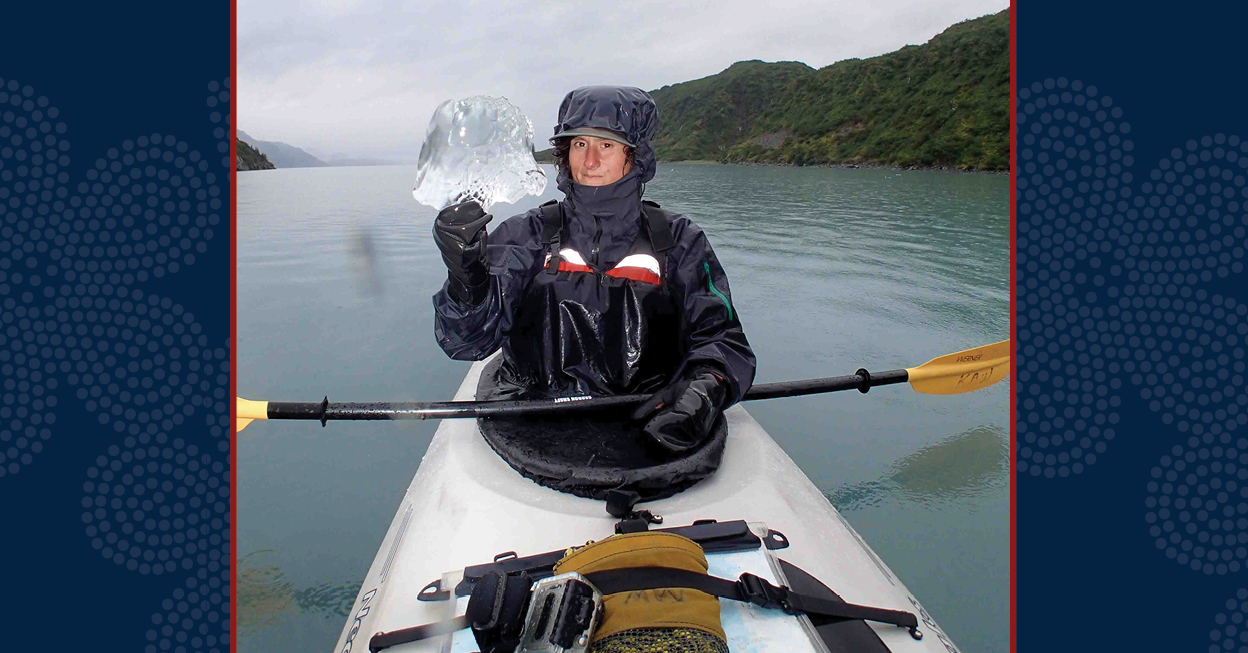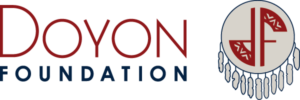 “I want to inspire students to excel at education”
“I want to inspire students to excel at education”
Raised in Seward, Buddy North attends Teachers College at Columbia University in New York City where he’s at work on a doctorate in philosophy and education. His mother is Marti Wallis of Fort Yukon and his maternal grandparents are the late Mae and Pete Wallis of Fort Yukon.
Buddy holds a bachelor’s degree from the University of Alaska Anchorage (UAA) and a master’s degree from the University of Victoria, British Columbia, Canada. He has been a Doyon Foundation scholarship recipient throughout his undergraduate and graduate years. Buddy anticipates graduating with his PhD in 2022.
Doyon Foundation: You’ve identified connections between your studies and Indigenous ways of teaching. What have you found?
Buddy North: The apex of formal education, PhD translates as doctor of philosophy. In this case, “doctor” means “expert” or “teacher,” while philosophy in ancient Greek means love of wisdom. Someone who earns a PhD becomes an expert in the love of wisdom, both a teacher and a leader.
This idea is reminiscent of the Indigenous way of education from time immemorial. Elders and leaders of Indigenous communities have always been experts and teachers, but unfortunately this has been given less emphasis in our times.
DF: These thoughts are shaping your long-term plans.
BN: Yes. I hope to teach instructors, philosophers, students and Native communities how to motivate a love of wisdom because it’s the foundation of all learning — Indigenous ways and the way of the schoolbook. With a philosopher’s eye toward the examined life, I abstain from drugs and alcohol.
I want to inspire students to excel at education to become Elders, experts, leaders and teachers. My professional goals hinge on giving back to our community and to others. By devoting my life to learning, sharing the love of wisdom, and working toward a healthier society, I hope to be a positive role model.
DF: How did Doyon Foundation help advance your education?
BN: Without Doyon Foundation I would have never made it through undergraduate school; I would not be where I am today. I would not have thought that education is valuable if Doyon Foundation did not also think so. With such support, I feel as if I’ve won the lottery because even if I had, I’d be doing exactly the same thing.
DF: A love of learning hasn’t always been true for you. What changed and why?
BN: I wasn’t inspired to learn through primary and secondary school. I was not curious about school. Then as a freshman at UAA, I began wondering, “How should I live my life?”
I learned that the discipline of philosophy asked this ancient question in a critical way; I realized I should learn more. For the first time in my life, I was drawn to academic education. I began nurturing my own education. I began playing an active role in learning about the world.
DF: You trace this early lack of interest to Alaska’s past.
BN: Since Russian colonialism, there has been a lived struggle between learning Indigenous ways and learning the way of the schoolbook. Schooling — which is distinct but related to education — was used in many ways as a tool against us.
I find it incredible that our ancestors flourished on Alaska’s wild lands for thousands of years. I take this fact as a token of pride. It illustrates difficulties overcome with a modest, sustainable and appreciative conscience.
DF: How are you enjoying life in a big city?
BN: When I’m not busy with school, I am hanging out with my wife and 2-year-old son, going to museums, parks and playgrounds around New York City. But we miss the wilderness.
DF: Does philosophy offer insight when it comes to succeeding in school? What would you like other students to know?
BN: There are character traits — virtues — needed to excel whether you’re in school, building and setting up a fish wheel in the Yukon River, or surviving and thriving in the wilderness.
Those traits are: resilience, perseverance, curiosity, wonder, creativity, imagination, intellectual humility, autonomy, collectivity, attentiveness, carefulness, thoroughness, open-mindedness, and intellectual and moral courage. Tenacity and appreciation for beauty are on the list as well.
DF: If you could sum up the list?
BN: Keep up the good and keep learning!
